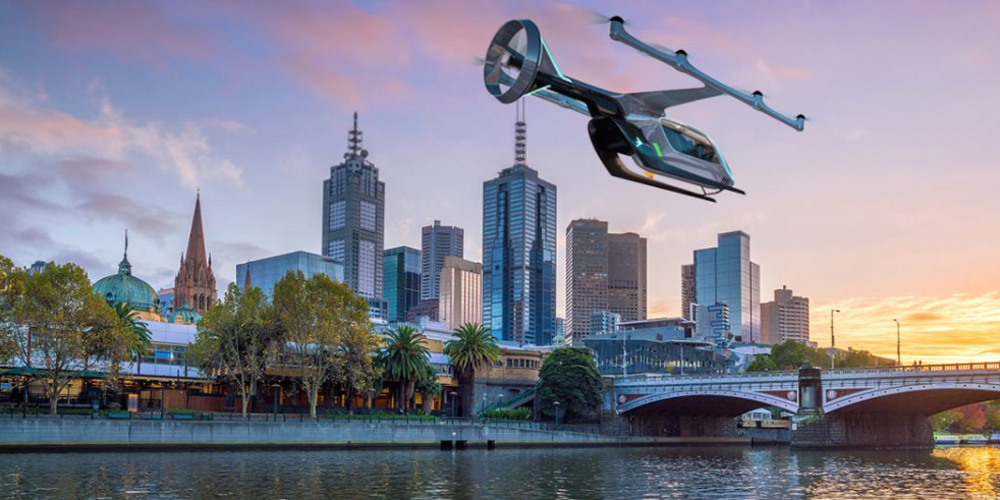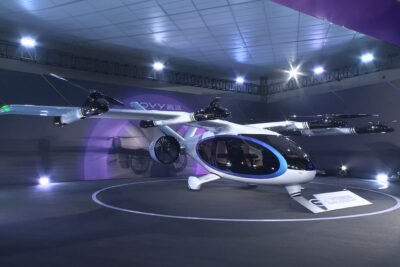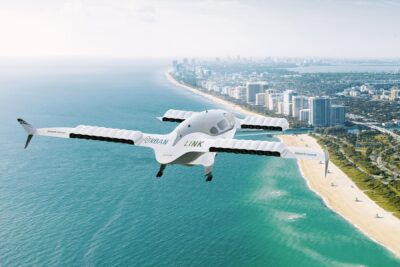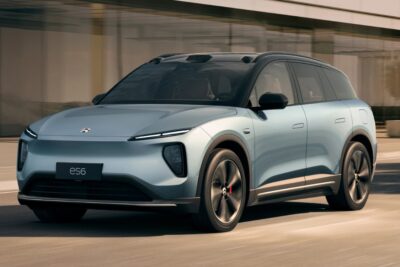Melbourne to pilot Uber Air’s flying taxis
Uber has selected Australia as the first “international market” for its planned e-flight taxi service Uber Air. Melbourne be the third city to pilot the program following Dallas and Los Angeles. Test flights are scheduled to start next year and commercial operations from 2023.
At last year’s Elevate conference, Uber presented a reference concept for manufacturers of its future electric aircraft and announced Dubai as the first market outside the USA. It seems these plans have now been overruled with the current announcement of Melbourne as the first international city, in Uber’s new announcement.
Melbourne was chosen because of its “unique demographic and geographical factors and its culture of innovation and technology,” said Susan Anderson, regional manager in charge, at this year’s Elevate conference. “Soon after, we will see more Australian cities.” Like other Australian cities, Melbourne suffers from a car-centric infrastructure, vast distances between cities with massively sprawling suburbs. Ironically, the lack of transport alternatives will make flying over highly congested traffic even more appealing for a few who can afford it, but likely inaccessible for the vast majority of Australians.
Uber, however, has a different spin on their enterprise in their press release: “In the long term, the vision is for safe, quiet electric vehicles transporting tens of thousands of people across cities for the same price as an UberX trip over the same distance.” How this will be afforded for “tens of thousands” of people logistically or financially was not explained.
The Uber aircraft is a kind of symbiosis of plane and helicopter with four rotors for lift and a fifth rotor at the tail for propulsion. The flying taxis will oscillate at an altitude of 300 to 600 meters and will initially be controlled manually by a pilot on board. In the long term, Uber is flirting with the idea of an autonomous fleet of flying taxis. The company had already specified that the air taxis would transport four passengers and be able to fly at speeds of up to 320 kph. The company is also planning to build an autonomous air taxi fleet.
The partners on board include the helicopter manufacturer Bell and the aircraft manufacturer EmbraerX – as well as the company ChargePoint, also supported by Daimler, which is to supply the charging stations for the electric vertical take-off aircraft. For the launch in Melbourne, partnerships with the Australian companies Macquarie, Telstra and Scentre Group as well as Melbourne Airport are expected to follow.





0 Comments